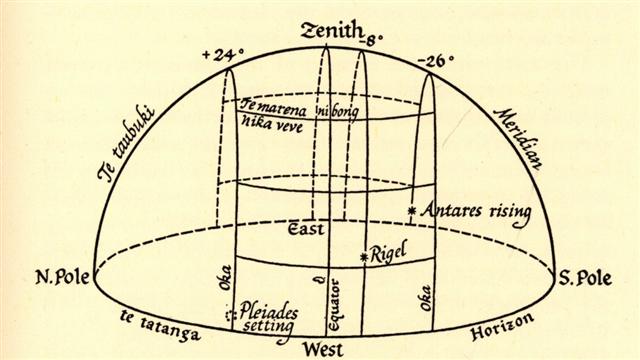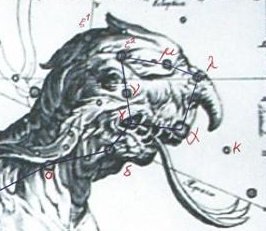254. On Hawaii the Lono
effigy was set off on its circuit - which
lasted for 23 (= 33 - 364 + 354) days - and
which was beginning 10 days after the
Pleiades in the evening had returned to visibility,
perhaps because the distance from the heliacal Pleiades (Alcyone, *56) to
nakshatra Antares (*249) measured 249 - 183
- 56 = 10 days.
It seems reasonable to assume
Lono (Rogo) was associated
with the end of the season beginning with Antares and
that the right ascension distance 193 days
from the triplet of heliacal 'stones'
Alcyone, Pleione, and Atlas to heliacal
Antares, once upon a time had referred to the
northern summer while the distance from
Antares to the 3 'stones' would have
referred to the northern winter (the
southern summer).
Similarly, the declination 24° N for the
Pleiades could have been associated with for
instance 24 halfhours of daytime and the
declination distance from Rigel at 8° S to
Antares at 26° with 18 halfhours of night.
From the equator to Rigel there would then
be 8 halfhours = 4 hours = 24h / 6h = 3
months. Counted from 0h at the time of
rongorongo to Rigel there were 78 right
ascension days and 3 * 26 = 78. Therefore
when north of the equator the Pope Gregory
XIII had decided there should be 11 + 80 =
91 (= 13 weeks) from the winter solstice to spring equinox (0h) it
implied a 13-day difference compared to the
situation south of the equator. 91 (= 7 *
13) - 78 (= 6 * 13) = 13.
Right ascension day *91 (6h) was
June 20 (171) and at the time of Hyadum II
(rising with the Sun at 0h) the
corresponding day would have been 171 - 64 =
107 (APRIL 17), with the Full Moon half a
year away in OCTOBER 17 (290, *210).
... The correspondence between the winter
solstice and the kali'i rite of the
Makahiki is arrived at as follows:
ideally, the second ceremony of 'breaking
the coconut', when the priests assemble at
the temple to spot the rising of the
Pleiades, coincides with the full moon (Hua
tapu) of the twelfth lunar month (Welehu). In
the latter eighteenth century, the Pleiades
appear at sunset on 18 November. Ten days
later (28 November), the Lono effigy
sets off on its circuit, which lasts
twenty-three days, thus bringing the god
back for the climactic battle with the king
on 21 December, the solstice (= Hawaiian 16
Makali'i). The correspondence is
'ideal' and only rarely achieved, since it
depends on the coincidence of the full moon
and the crepuscular rising of the Pleiades
...
|
The '6 stones' (Tau-ono)
- the Pleiades (Mata-riki,
the Small Eyes) - returned to
visibility.
2nd ceremony of breaking the Coco-nut. |
November 18 (*242 = *59 + *183 =
*210 + *32)
Hua tapu (Welehu) |
|
The cycle of Lono was
beginning. |
November 28 (332 = 355 - 23) |
|
Splashing water (Hi'uwai).
Cycle of
Lono
completed. |
December 20 (354 = 6 * 59) |
|
Kali'i (Battle of the
King). |
December 21 (*275 = *242 + *33)
(Makali'i 16) |
|
The House (Haumea)
encircled by Kahoali'i in
the Net of Maoloha.
Lono
sacrificed. Makahiki
effigy dismantled and hidden
away.
Eye swallowed by Death-is-Near,
Koke-na-make
=
Kahoali'i
(Living God, the Companion of
the King). |
December 23 (357 = 322 + 35)
(Makali'i 18) |
|
A tribute-canoe of offerings to
Lono was set adrift for
Kahiki, homeland of the
gods. |
We should try to make this map fit with the dates of
the final
events of Captain Cook and a definite
connection had been created by the death of poor old Willie
Watman in the morning of 1 February:
|
29 Jan |
30 |
31 |
1 Febr (32) |
|
... Among the other ritual
coincidences, perhaps the
most remarkable was the
death of poor old Willie
Watman, seaman A. B., on the
morning of 1 February.
Watman was the first person
among Cook's people to die
at Kealakekua: on the
ceremonial day, so far as
can be calculated, that the
King's living god Kahoali'i
would swallow the eye of the
first human sacrifice of the
New Year. And it was the
Hawaiian chief - or by one
account, the King himself -
who specifically requested
that old Watman be buried at
Hikiau temple. |
 |
 |
 |
 |
|
Cb10-1 (392 + 6 + 225 ) |
Cb10-2 (624) |
Cb10-3 (233 = 625 - 392) |
Cb10-4 |
|
Ku hakaraoa
- te inoino |
hakarava |
te inoino |
ku hakaraoa |
|
Raoa.
Pau.: To choke on a
fishbone. Mgv.:
roa, a bone
stuck in the throat.
Ta.: raoa, to
choke on a bone.
Sa.: laoa, to
have something
lodged in the
throat. Ma.: raoa,
to be choked.
Churchill. |
|
|
ALMAAZ (He Goat) = ε Aurigae
(74.7),
HAEDUS I = ζ Aurigae
(74.8) |
HAEDUS II = η Aurigae
(75.9) |
5h (76.1)
ε Leporis (76.0),
CURSA = β Eridani
(76.4), λ Eridani (76.7) |
μ Aurigae, μ Leporis (77.6) |
|
no star listed (257) |
17h (258.7)
ARRAKIS = μ Draconis
(258.7) |
Mula-19 (The Root)
SABIK (The Preceding One) =
η Ophiuchi (259.7), η
Scorpii (259.9) |
NODUS
I = ζ Draconis
(260.0), π Herculis (260.7),
RAS ALGETHI
(Head of the Giant)
= α Herculis
(260.8) |
|
Dec 3 (337) |
4 |
5 |
6 (*260) |
At the time of rongorongo the
Head of the Giant (Ras Algethi, α Herculis)
occupied right ascension position *260 (= 20
* 13),
which corresponded to day 340 (December 6).
But this star would not return to visibility
until at least 16 nights later, i.e. in
December 22, which fact agrees rather well
with the following day when the eye ball of a victim was swallowed in
December 23 (357).
... And this is when a maiden heard of it,
the daughter of a lord. Blood Gatherer is
the name of her father, and Blood Moon is
the name of the maiden. And when he heard
the account of the fruit of the tree, her
father retold it. And she was amazed at the
account: I'm not acquainted with that tree
they talk about. It's fruit is truly sweet!
they say, I hear, she said. Next, she went
all alone and arrived where the tree stood.
It stood at the Place of Ball Game
Sacrifice. What? Well! What's the fruit of
this tree? Shouldn't this tree bear
something sweet? They shouldn't die, they
shouldn't be wasted. Should I pick one? said
the maiden ...

How can we establish an
equality between December 23 (357) and 1
February
(±1 day)? 365
+ 36 = 401 and 401 - 357 = 44
(±1 day). However, the key date
evidently came 4 days later and 405 - 357 =
48 (= 36 + 12). In 4 February Captain Cook
sailed away after 3 days of sacrifices and
ceremonies, having survived so far like
Caesar when he in the day after 3-14 was
walking to the Senate, and at
that time his
departure was similar to how the canoe of
Lono was set adrift for his homeland
after having been ashore for 3 days:
... Terreoboo [Kalaniopu'u] and his
Chiefs, had, for some days past, been very
inquisitive abouth the time of our
departure' - to which his private journal
adds, '& seem'd well pleas'd that it was
soon'
...
|
2 Febr (33) |
3 |
4 |
5 (36 = 177 - 141)
|
|
Messrs. Cook and King read the
burial service, thus introducing
Christianity to the Sandwich
Islands, with the assistance
however of the high priest
Ka'oo'oo and the Lono
'brethren', who when the English
had finished proceeded to make
sacrifices and perform
ceremonies at the grave for
three days and nights. So in the
early hours of 4 February,
Cook sailed out of Kealakekua
Bay, still alive and well. The
King, too, had survived Lono's
visit and incorporated its
tangible benefits, such as iron
adzes and daggers. In principle,
the King would now make
sacrifices to Kuu and
reopen the agricultural shrines
of Lono. The normal cosmic
course would be resumed. |
|
... the Palenque scribes
repeated Creation again and
described it as 'it was made
visible, the image at
Lying-down-Sky, the
First-Three-Stone-Place'. Then
we learned that five hundred
and forty-two days later
(1.9.2 in the Maya system),
Hun-Nal-Ye 'entered or
became the sky' (och ta chan).
This 'entering' event occurred
on February 5, 3112 B.C. The act
of 'entering the sky' is
recorded on another
extraordinary painted pot.
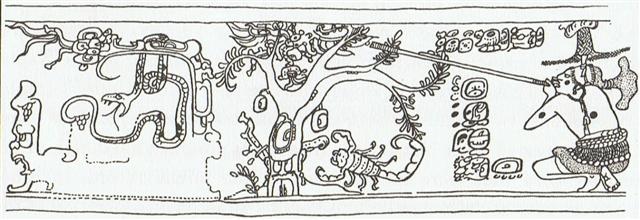
This pot depicts one of the Hero
Twins (One-Ahaw in the Classic
texts and One-Hunaphu in the
K'iche' Popol Vuh) and a
great bird who is trying to land
in a huge ceiba tree heavy with
fruit. This mythical bird is
Itzam-Yeh, Classic prototype
of Wuqub-Kaqix,
'Seven-Macaw', of Popol Vuh
fame. In that story, in the time
before the sky was lifted up to
make room for the light, the
vainglorious Seven-Macaw
imagined himself to be the sun.
Offended by his pride, the Hero
Twins humbled him by breaking
his beautiful shining tooth with
a pellet from their blowgun.
This pot shows One-Ahaw aiming
at the bird as he swoops down to
land in his tree. As
Itzam-Yeh lands on his
perch, the text tells us he is
'entering or becoming the sky'.
This particular 'sky-entering'
is not the one mentioned in the
Palenque text. It is the final
event that occurred in the
previous creation before the
universe was remade. Before the
sky could be raised and the real
sun revealed in all its
splendor, the Hero Twins had to
put the false sun, Itzam-Yeh,
in his place. If the date on
this pot corresponds to that
pre-Creation event, as we
believe it does, then
Itzam-Yeh was defeated in
12.18.4.5.0 1 Ahaw 3 K'ank'in
(May 28, 3149 B.C.). After
the new universe was finally
brought into existence, First
Father also entered the sky by
landing in the tree, just as
Itzam-Yeh did
... |
|
Notably 5 February (36)
could be regarded as a measure
for the difference between 3 *
59 (= 177) and 141 (the day
number for 21 May). 542 = 365 +
177, but 542 - 177 + 141 = 401 =
365 + 36. Therefore the distance
from the first 3-stone place to
the day when Hun-Nal-Ye
entered into the Tree was probably
not 542 but in a way 141 days
less or 36 days more - another
time was beginning in day
401, viz. in 5 February (36). |
|
Evidently a new time circuit began in day 5 of February,
after 4 days during which
Ku(u)
had been 'choking on
fishbones' - which can be
compared with another quartet of 4 days on
side b, from the Front of the
Head of Ku(u) to the Back
of the Head of Ku(u):
 |
 |
 |
 |
|
Cb1-1 |
Cb1-2 |
Cb1-3 |
Cb1-4 (396) |
|
E tupu |
ki roto |
o
te hau tea |
ki
te henua - te maro |
|
Al Sharatain-1 /
Ashvini-1 /
Bond-16 (Dog) /
Mahrū-sha-rishu-ku-1
(Front of the Head
of Ku)
SEGIN = ε
Cassiopeia,
MESARTHIM = γ
Arietis,
ψ Phoenicis (27.2),
SHERATAN
(Pair of Signs) = β
Arietis,
φ Phoenicis (27.4) |
ι Arietis (28.0), λ
Arietis (28.2), υ
Ceti (28.8) |
ALRISHA
(The Knot) = α
Piscium,
χ Phoenicis (29.2),
ALAMAK (Caracal) = γ
Andromedae
(29.7) |
Arku-sha-rishu-ku-2
(Back of the Head of
Ku)
2h (30.4)
κ Arietis (30.3),
HAMAL
(Sheep) = α Arietis
(30.5)
ALKES (α Crateris)
|
|
0h around 76 B.C. |
'March 22 (81) |
23 (365 + 82) |
24 (8 * 56 = 64 * 7) |
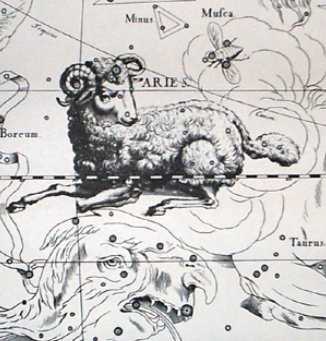 |
|
 |
 |
 |
 |
|
Cb10-5 |
Cb10-6 (8 * 29½) |
Cb10-7 (237) |
Cb10-8 (630 = 453 + 177) |
|
kua tu tona
mea |
koia kua kake |
ka moa ki raro |
kua pu |
|
ĸ Leporis (78.0),
RIGEL
(Foot) = β Orionis
(78.1),
Flaming Star = IC405 Aurigae
(78.2),
CAPELLA
(Mother Goat) = α Aurigae
(78.4), ο Columbae, τ Orionis
(78.8)
THUBAN (α Draconis |
λ Aurigae (79.0), λ Leporis
(79.6), ρ Aurigae (79.7)
ARCTURUS (α Bootis)
|
Shur-narkabti-sha-iltanu-5 (Star
in the Bull towards the north)
σ Aurigae (80.4),
BELLATRIX (Female Warrior) = γ
Orionis,
SAIF AL JABBAR (Sword of the
Giant)
= η Orionis (80.7),
ELNATH
(The Butting One) = β Tauri
(80.9) |
ψ Orionis (81.1),
NIHAL (Thirst-slaking Camels) =
β Leporis
(81.7) |
|
SARIN = δ
Herculis (261.0), ο
Ophiuchi (261.4)
ALRISHA (α Piscium)
|
ξ
Ophiuchi (262.2), θ Ophiuchi, ν
Serpentis, ζ, ι Apodis (262.4),
ι Arae (262.8), ρ Herculis
(262.9) |
β, γ Arae (263.3), κ Arae
(263.5), σ Ophiuchi (263.6) |
LESATH
(Sting) = ν Scorpii, δ
Arae (264.7),
CHOO
(Club) = α Arae
(264.9) |
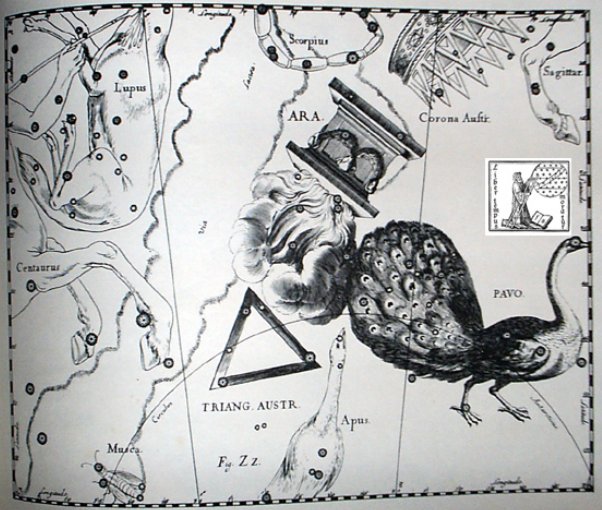 |
The declination distance
from the Pleiades to Rigel was 24° + 8° =
32°. And the
right ascension distance was 78 (= 3 *
26) - 56 (= 4 * 14) = 22 days.
32°
- 22° = 10°
→ 364 - 354.
The key number 32 could be described as
the difference between 52 weeks (364)
and 332 (November 28 when the circuit of
Lono was beginning) or as the
difference between All Hearts' Day
(2-14) and half 364:
|
Counting the tresses of
Pachamama (the World
Mother) from right to left: |
|
1 |
26 |
78 |
1 |
29 |
90 |
|
2 |
26 |
2 |
30 |
|
3 |
26 |
3 |
31 |
|
4 |
25 |
104 |
4 |
34 |
124 |
|
5 |
26 |
5 |
31 |
|
6 |
27 |
6 |
30 |
|
7 |
26 |
7 |
29 |
|
182 (= 7 * 26) |
214 (= 2 * 107) |
|
Total = 396 = 182 + 214 =
364 + 32 |

When Rigel and Capella
rose with the Sun it was in
day 33 (2 February, 2-2), when in
the evening at 21h Thuban had
culminated.
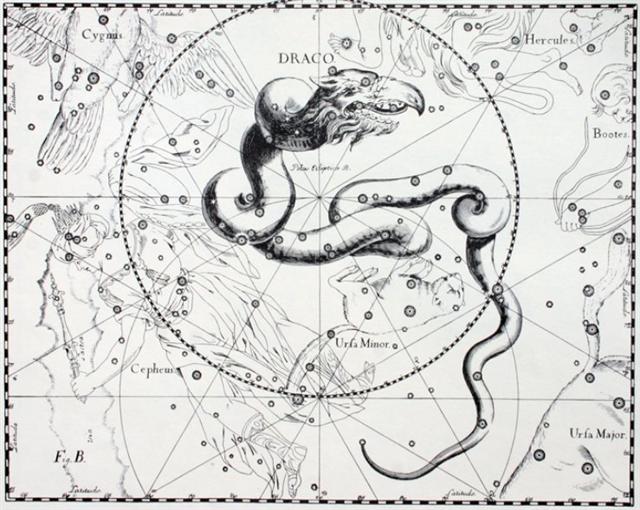
And 3 nights later the Full
Moon should (ideally) reach
α in the
Ara constellation. The name Choo
for α Arae
could have alluded to the Club of
Hercules:
... Hercules first appears in legend as
a pastoral sacred king and, perhaps
because shepherds welcome the birth of
twin lambs, is a twin himself. His
characteristics and history can be
deduced from a mass of legends,
folk-customs and megalithic monuments.
He is the rain-maker of his tribe and a
sort of human thunder-storm. Legends
connect him with Libya and the Atlas
Mountains; he may well have originated
thereabouts in Palaeolithic times. The
priests of Egyptian Thebes, who called
him Shu, dated his origin as
'17,000 years before the reign of King
Amasis'.
He carries an oak-club, because the oak
provides his beasts and his people with
mast and because it attracts lightning
more than any other tree. His symbols
are the acorn; the rock-dove, which
nests in oaks as well as in clefts of
rocks; the mistletoe, or Loranthus;
and the serpent. All these are sexual
emblems. The dove was sacred to the
Love-goddess of Greece and Syria; the
serpent was the most ancient of phallic
totem-beasts; the cupped acorn stood for
the glans penis in both Greek and
Latin; the mistletoe was an all-heal and
its names viscus (Latin) and
ixias (Greek) are connected with
vis and ischus (strength) -
probably because of the spermal
viscosity of its berries, sperm being
the vehicle of life.
This Hercules is male leader of all
orgiastic rites and has twelve archer
companions, including his spear-armed
twin, who is his tanist or
deputy. He performs an annual green-wood
marriage with a queen of the woods, a
sort of Maid Marian. He is a mighty
hunter and makes rain, when it is
needed, by rattling an oak-club
thunderously in a hollow oak and
stirring a pool with an oak branch -
alternatively, by rattling pebbles
inside a sacred colocinth-gourd or,
later, by rolling black meteoric stones
inside a wooden chest - and so
attracting thunderstorms by sympathetic
magic
...
When the Full Moon
reached Nek-kar at the Head of backward
looking Bootes
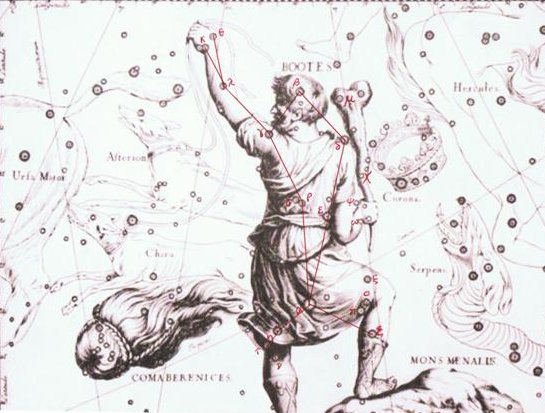
then the Sun would be at
the Mouth of the Sea
Beast (Men-kar,
α Ceti,
Cb9-1 → 91 = 227 - 136). Which
was preceded by Yoni (Bharani) - in turn preceded by a figure
with a great club in 23 December (357)
= in Makali'i 18:
|
21 Dec (Solstice) |
22 |
Makali'i 18 |
 |
 |
 |
|
Cb8-21 (584 =
392
+ 192) |
Cb8-22 (193) |
Cb8-23 |
|
koia
ia |
kua
haga ia - kua huki |
koia
ra - tona mea |
|
Synodic cycles |
|
Mercury |
115.88 |
|
Venus |
583.92 |
|
|
|
Mars |
779.96 |
|
Jupiter |
398.88 |
|
Saturn |
378.09 |
|
Uranus |
369.66 |
|
|
24 Dec |
25 |
26 (360) |
27 |
28 |
29 |
 |
 |
 |
 |
 |
 |
|
Cb8-24 |
Cb8-25 |
Cb8-26 |
Cb8-27 |
Cb8-28 (199) |
Cb8-29 (592) |
|
te
maitaki |
kua
hua te kahi |
te
ahine poo puo |
ki te
huaga |
ki te
huaga |
te
kahi |
|
ν Arietis (38.5), δ, ε
Ceti (38.8) |
μ Arietis (39.4),
HEAD OF THE FLY = 35
Arietis
(39.6),
KAFFALJIDHMA (Part of a
Hand) = γ Ceti,
θ Persei (39.8) |
π Ceti, ο Arietis
(40.0),
ANGETENAR (Bend in the
River) = τ¹
Eridani,
μ Ceti (40.2),
RIGHT WING = 39 Arietis
(40.9) |
π Arietis (41.2),
MIRAM (Next to the
Pleiades) = η Persei
(41.3),
BHARANI
= 41 Arietis (41.4),
τ² Eridani, σ Arietis
(41.7) |
TA LING (Great Mound) =
τ Persei
(42.4) |
ρ Arietis (43.0),
GORGONEA SECUNDA = π
Persei
(43.5),
ACAMAR = θ Eridani
(43.6), ε Arietis
(43.7), λ Ceti (43.9)
DENEBOLA (β Leonis)
|
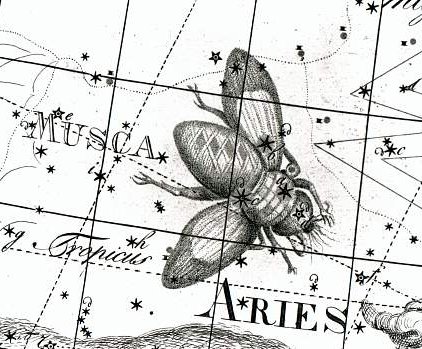 |
|
30 Dec (364) |
31 (zero) |
1 Jan (33 - 32) |
2 |
 |
 |
 |
 |
|
Cb9-1 (201) |
Cb9-2 (238 - 36) |
Cb9-3 |
Cb9-4 (596 = 392 + 204) |
|
Vai o ero
hia |
kua tere |
ki te
marama |
kua oho |
|
Tere.
1. To
run, to flee, to
escape from a
prison. 2. To sail a
boat (also:
hakatere);
tere vaka, owner
of a fishing boat.
3. (Deap-sea)
fisherman; tere
kahi, tuna
fisherman; tere
ho'ou, novice
fisherman, one who
goes deap-sea
fishing for the
first time. Penei
te huru tûai; he-oho
te tere ho'ou ki
ruga ki te
hakanonoga; ana ta'e
rava'a, he-avai e te
tahi tagata tere
vaka i te îka ki a
îa mo hakakoa, mo
iri-hakaou ki te
hakanonoga i te tahi
raá. The ancient
custom was like
this: the novice
fisherman would go
to a hakanonoga;
if he didn't catch
anything, another
fisherman would give
him fishes to make
him happy so he'd go
again one day to the
hakanonoga
(more distant
fishing zones where
larger fishes are
found). Vanaga. To
depart, to run, to
take leave, to
desert, to escape,
to go away, to flee,
fugitive, to sail,
to row, to take
refuge, to withdraw,
to retreat, to save
oneself; terea,
rest, defeat;
tetere, to beat
a retreat, to go
away, refugee;
teretere, to go
away, hurrah;
hakatere, to set
free, to despatch,
to expel, to let go,
to liberate, to
conquer, helmsman;
terega,
departure, sailing;
teretai, a
sailor. Churchill. |
|
|
MENKAR
= α Ceti
(44.7) |
3h (45.7)
GORGONEA TERTIA = ρ Persei
(45.1),
ALGOL
= β Persei
(45.9) |
ι Persei (46.1),
MISAM (Next to the Pleiades)
= κ Persei
(46.2),
GORGONEA QUARTA) = ω Persei
(46.7),
BOTEIN (Pair of Bellies) = δ
Arietis
(46.9) |
ζ Arietis (47.7) |
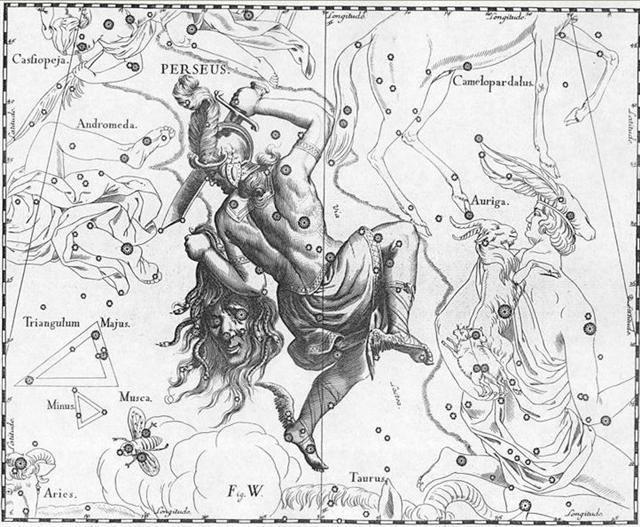 |
|
ω Bootis (227.2),
NEKKAR (Herdsman) = β
Bootis
(227.3), σ
Librae (227.5), π² Oct.
(227.7),
NADLAT
(Mean Little Ones) = ψ
Bootis (227.8), π
Lupi (227.9) |
15h (228.3)
ZUBEN HAKRABIM = ν Librae
(228.3), λ Lupi (228.9) |
ω Oct. (229.3), ι Librae
(229.6), κ Lupi (229.7), ζ
Lupi (229.8) |
Al Zubānā-14b (Claws)
χ Bootis (230.3),
PRINCEPS = δ Bootis
(230.6),
ZUBEN ELSCHEMALI (Northern
Claw) = β Librae
(230.8) |
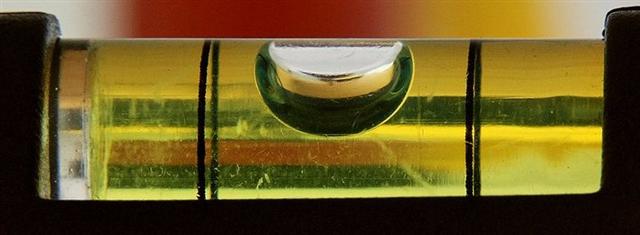 |
There were 392 + 348 =
740 glyphs on the C tablet and 2 * 370 =
740. Glyph 229 (= 365 - 136, cfr
91
= 227 - 136, → 320
= 91 + 229) on
side b could have corresponded to day
392 (27 January):
|
10 Jan |
11 |
12 |
13 |
14 |
15 |
 |
 |
 |
 |
 |
 |
|
Cb9-12 (604) |
Cb9-13 (213) |
Cb9-14 |
Cb9-15 |
Cb9-16 |
Cb9-17 |
|
te maitaki -
ka hua roa |
te maitaki -
oho te vae |
te inoino |
oho te vae |
e inoino |
oho te vae |
|
ATIKS = ο Persei, RANA (Frog) =
δ Eridani
(55.1), ν Persei
(55.3),
CELAENO
(16 Tauri),
ELECTRA
(17),
TAYGETA
(19),
MAIA
(20),
ASTEROPE
(21),
MEROPE
(23)
(55.6)→
TAU-ONO (6 Stones) |
Hairy Head-18 (Cockerel) /
Temennu-3 (Foundation Stone)
ALCYONE
(56.1),
PLEIONE
(28 Tauri),
ATLAS
(27)
(56.3)
→
3 Stones (TAU-TORU) |
MENKHIB (Next to the Pleiades) =
ζ Persei
(57.6)
PORRIMA (γ Virginis)
|
ZAURAK
(The Boat) = γ Eridani
(58.9) |
λ Tauri (59.3), ν Tauri (59.9) |
4h (60.9)
JĪSHUĬ (Piled-up Waters) = λ
Persei
(60.7)
COR
CAROLI (α Canum Ven.) |
|
16 Jan |
17 |
18 |
19 (384) |
 |
 |
 |
 |
|
Cb9-18 |
Cb9-19 |
Cb9-20 (220) |
Cb9-21 (613) |
|
e mago vaha ia |
te inoino |
kua huki te
inoino |
tagata kua puo
tona mea |
|
υ Persei (61.2) |
BEID (Egg) = ο¹ Eridani
(62.2), μ Persei (62.8)
VINDEMIATRIX ( ε Virginis) |
Al Dabarān-2 (The Follower)
HYADUM I = γ Tauri
(63.4) |
HYADUM II = δ¹ Tauri
(64.2) |
|
20 Jan |
21 |
22 |
23 |
24 |
 |
 |
 |
 |
 |
|
Cb9-22 |
Cb9-23 |
Cb9-24 |
Cb9-25 (225) |
Cb9-26 (618) |
|
Te inoino |
te hau tea |
te inoino |
tagata honui
kua kake - ki te manu |
e manu piri
rua |
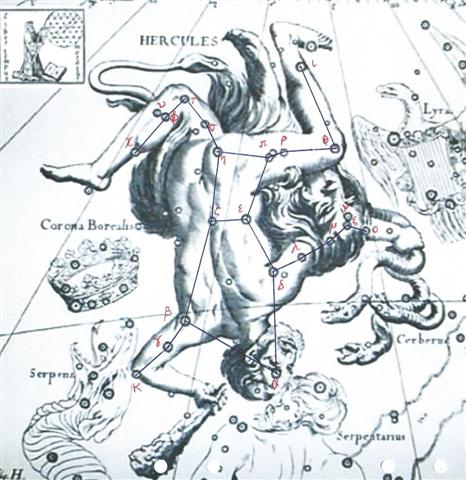
|
